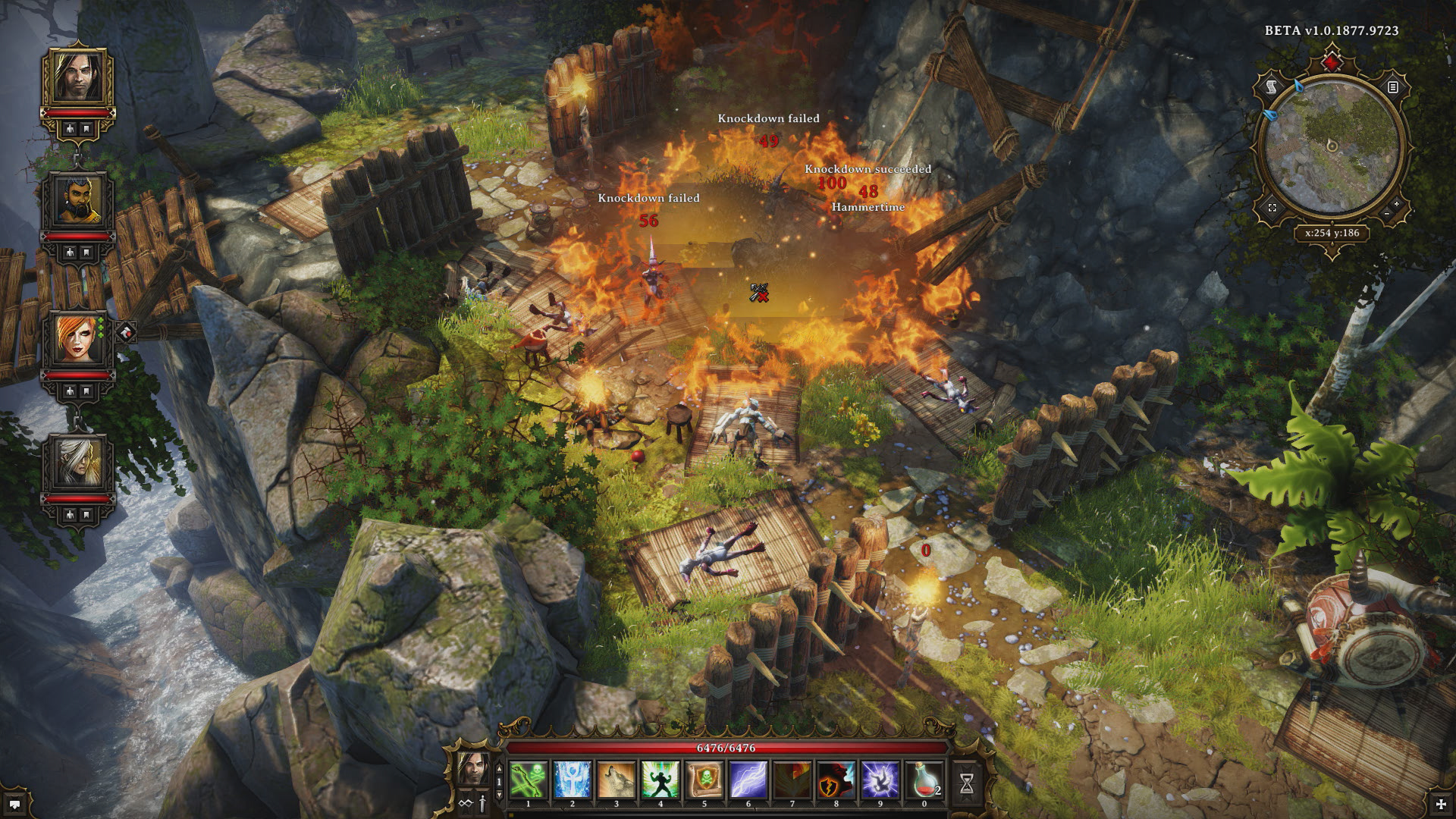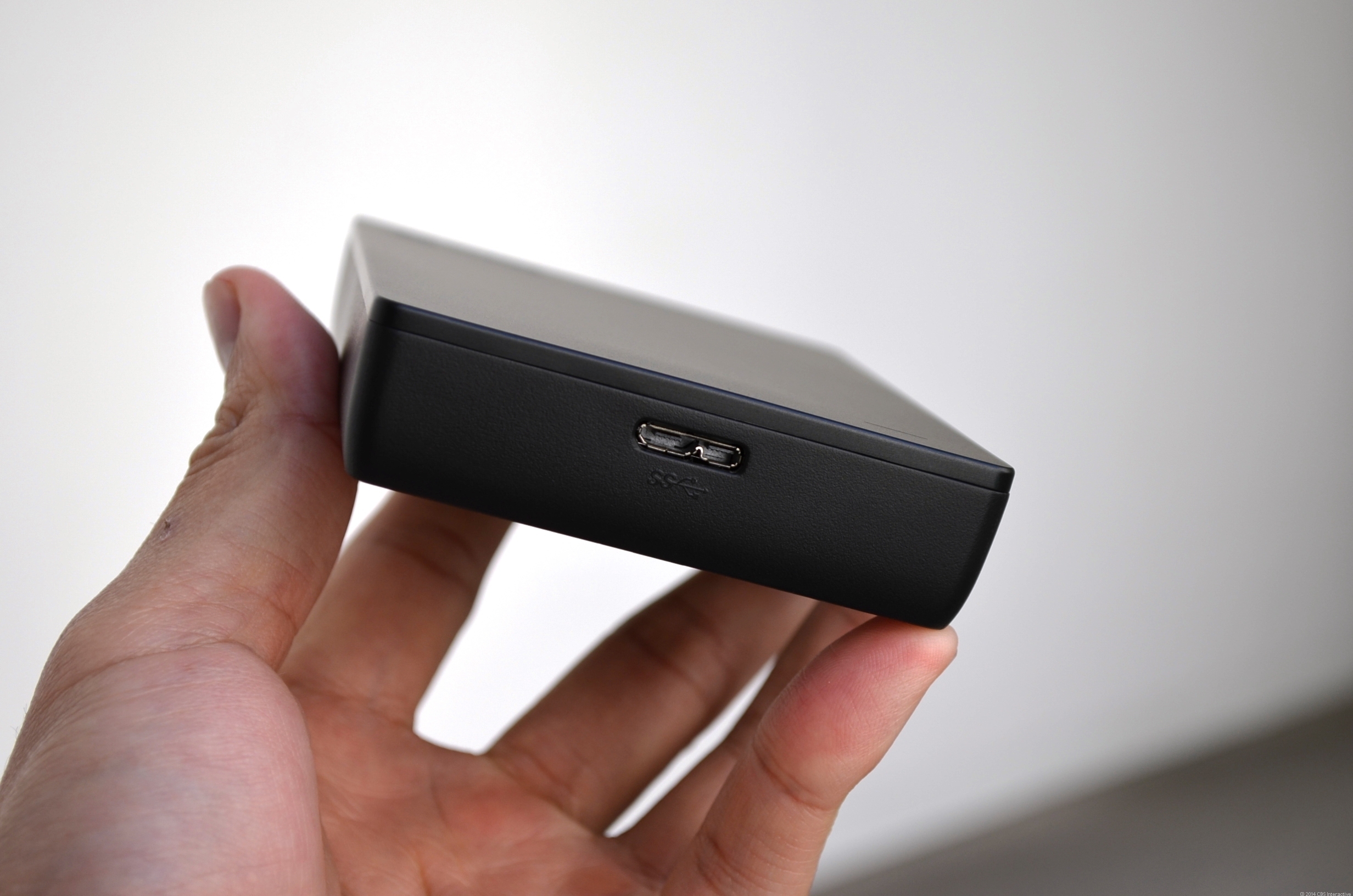Divinity: Original Sin. A flawed, but challenging RPG romp

IF YOU'RE LOOKING FOR A modern-day recreation of the Baldur's Gate series-or, really, any of those isometric Infinity Engine games of yesteryear-then Divinity: Original Sin might appear as if it has the potential to satisfy your old-school gaming urges, at first glance. In many ways, it does. It's a delightfully deep roleplaying game that puts you in "control" of two characters at once. That's really a bit of a gimmick; you still do the oldfashioned RPG technique of telling one person to go here or there, with the rest of your four-person party following in step. Your two characters interact frequently, which makes for a bit of a surrealist moment when you go to decide what each says to the other (and how their relationship ultimately unfolds). Those of you who don't like talking to yourself will likely prefer the game's AI options for conversations. If you're creative, you can make this interaction work even better for you. We often enjoyed "decoupling" our four-person party and having three stand in front of an important NPC and hold its focus while the fourth, our expert thief, looted everything in the room that wasn't bolted down. No, we weren't actually playing the game as an "evil" party.
However, massive thievery-art theft, specifically- is one of the major ways to quickly earn cash in the game. Baldur's Gate, this ain't. Don't expect to go steamrolling through crowds of baddies with no issues whatsoever, amassing all sorts of loot and unique weaponry along the way. First off, the game's combat is completely turn-based. Battles take time. Each character in combat has initiative, which determines in what order they fight throughout combat-we completely missed the "delay turn" button on the right side of the game's screen, which might have come in handy during some of our tougher tactical encounters. About those. We found Divinity: Original Sin to be a bit tough. We're not quite sure if it's the game's turn-based aspect, the makeup of our party, or what. It was a bit annoying to roll a fighter/tank as one of our main characters, only to receive a free fighter/tank as the first of the two total NPCs that can join your travelling party. But, we didn't figure that would be a huge detriment as we progressed our way through the early stages of the game.
We were wrong. This is definitely an area that developer Larian Studios needs to address with player character DLC packs (or free add-ons), as message board post after message board posted seemed to indicate that our party makeup was ill-advised. We felt the effects of that in one of our first major battles outside of the game's "first act" city of Cyseal, where we were thoroughly decimated by a party of eight-to-ten undead creatures. Reload. Decimated. Reload. Decimated. We eventually got past our predicament by running through every side quest we could find in an attempt to level our characters as much as possible prior to heading out once more. We also turned to the game's unstable economy-namely, the ease at which one can steal fairly expensive items and barter them with anyone around-to outfit our folk with as much fancy gear as we could (but shouldn't be able to) get our hands on. Nevertheless, having a combat roadblock so early on in the game did sap some of its fun, and might very well have overtaken our interest in continuing forward were we not reviewing the title.
In outfitting our party, we were forced to deal with the game's fairly cumbersome UI. Those familiar with the aforementioned isometric RPG titles (or role-playing games in general) should know the deal by now: drag-and-dropping gear onto your paper doll characters from your semi-chaotic inventory, et cetera. Since Divinity: Original Sin allows for co-op multiplayer, that means that Larian Studios has decided to treat all of your characters as if they are separate individuals, inventory-wise. For solo gamers, inventory management is a huge pain in the butt. Only one character's inventories can be used to barter with merchants at once, and gold reserves are individual to each character (no group "gold account," as is typically seen in multi-character RPGs). This forces you to frequently exchange your sellable goods between multiple characters as you're going about the buying process. You can't do this by dragging-and-dropping items onto character portraits; you have to right-click each item and "send it" to a particular character. Even the bartering process itself is irritating. If you could only just quick-sell items in your inventory (Diablo-style) by rightclicking on them when talking to a merchant. To transact anything in the game, you have to move the items you want to "sell" to the left-most portion of the bartering window. You then click the items you want on the other side. We spent a good chunk of our game using a merchant's "gold" icon and a slider to set an exact price for our goods. We appreciate the manual control, but didn't realize that the "scales" icon in the game's bartering window would do that for us until we completed far too many transactions. While we appreciate that Divinity: Original Sin doesn't hold one's hand that much as far as questing goes, we would have preferred a little more help for navigation. Some buildings are marked on your map when you uncover them, but not all. A pin-drop quest marker only shows you where you might want to go for the main story quest. Your logbookslash- journal keeps records of what you've been up to, like most typical RPGs, but it isn't always crystal-clear about how to finish up some side quests, nor where you might want to start looking if you haven't even uncovered much of the map. Going door to door to find key characters and locations seemed to take forever in the early part of the game.
We greatly enjoy Divinity: Original Sin's treatment of the environment, however. The game constantly encourages you to monkey around with everything around you, be it throwing and exploding barrels filled with flammable gunk, rearranging furniture to find hidden buttons for secret rooms, or bashing down locked things that, in other games, would require the delicate touch of a thief to get past. We often found ourselves looking at combat with much more strategy in mind than we would other titles; of course, as we mentioned, we still had a tendency to get beat up. Divinity: Original Sin is hardly a flawless title. Its single-player annoyances might turn gamers off at first, but its creativity, challenges, and puzzles are worth pushing toward. This isn't the game we'd give to RPG newcomers, but veterans will appreciate the good that comes with the bad-especially if a few patches fix up some of the title's quirks.
|
|



